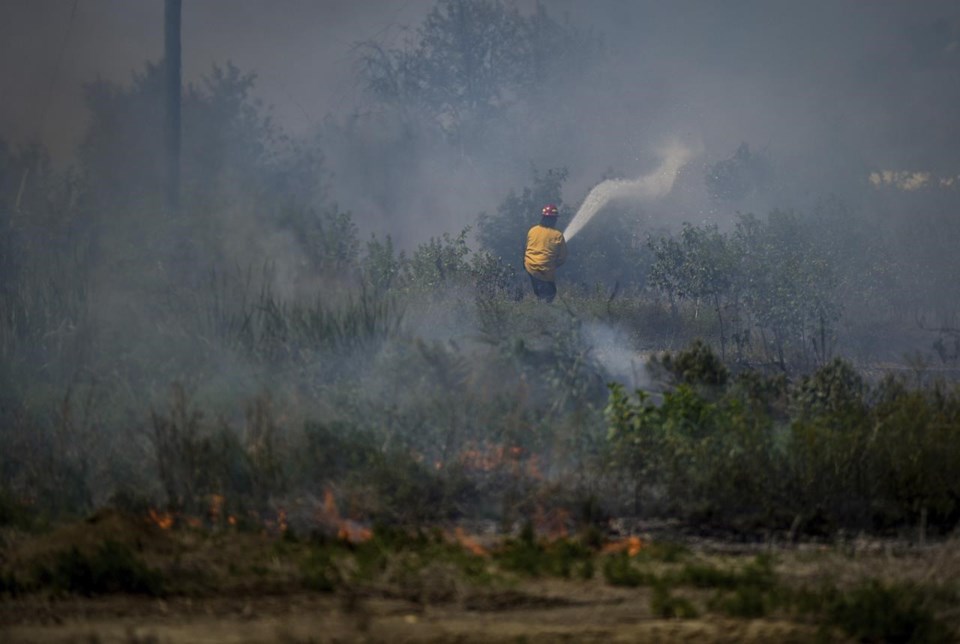VANCOUVER — For the first time this year, air quality advisories are posted for part of Vancouver Island and a large section of the Lower Mainland as smoke from several wildfires wafts over the region.
Two out-of-control wildfires east of Vancouver plus a blaze on Vancouver Island are contributing to the smudgy skies and Environment Canada says smoke concentrations will "vary widely" as wind, temperature and wildfire behaviour change.
A shift in weather could cut the smoke and the weather office says showers are likely across the lower quarter of the province on Friday, possibly bringing as much as 10 millimetres of rain to the Squamish, Sechelt, Metro Vancouver and Fraser Valley regions before weekend sun and heat return.
No showers are due in parts of parched northeastern B.C. until at least next week and the forecast shows temperatures should remain well above average through the weekend, meaning no respite from smoky conditions or aid for crews battling several large wildfires.
The B.C. Wildfire Service says a blaze that was only spotted Tuesday south of Dawson Creek now covers 96 square kilometres near the Alberta boundary, forcing the Peace River Regional District to expand an evacuation order late Wednesday.
The wildfire centre reports more than 80 active fires across B.C., including one on Vancouver Island east of Port Alberni that has grown to nearly 1.5-square kilometres, closing Highway 4, the key route leading to that city and the west coast of the Island.
A statement from Port Alberni Mayor Sharie Minions was issued Wednesday, noting a four-hour back-road detour has been opened for essential travel and urging residents and travellers unable to use the rough route to remain patient and calm.
"Although there may be a bit of a delay, our grocery stores will still be able to stock their shelves, our gas stations will not run out of fuel, and our restaurants will continue to get supplies," Minions said.
"The Alberni-Clayoquot Regional District will keep the Emergency Operations Centre open so that if the situation changes, they can react quickly and keep our community and residents safe," said the statement.
The wildfire service was reporting five new fires in the last 24 hours, while 29 of the 81 active wildfires were still ranked as out of control.
Campfire bans were scheduled to take effect Thursday across most of British Columbia as the wildfire danger remained high to extreme everywhere except the northwest and southeast corners of the province and on Haida Gwaii.
A heat wave gripping much of B.C., and contributing to the drought-like conditions led to 10 daily temperature records in the province on Wednesday, including one that had stood for 125 years in the Pitt Meadows area of Metro Vancouver.
The mercury reached 32C on Wednesday, shattering the previous record of 30.6 set in Pitt Meadows in 1898.
The Fraser Canyon community of Lytton was the hot spot in B.C. and Canada at 36.9 C, edging the previous high of 36.7 degrees set in 1948.
In all, B.C. claimed nine of the top 10 hottest temperatures in Canada on Wednesday as Lytton, Ashcroft, Kamloops, Pemberton and Lillooet all recorded temperatures above 35 C.
This report by The Canadian Press was first published June 8, 2023.
The Canadian Press



